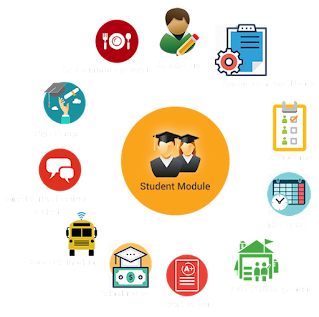College ERP System
A college ERP system is an enterprise resource planning system designed specifically for educational institutions, including colleges and universities. From student registration and admission to faculty management and financial administration, this system integrates all aspects of college operations. The main benefit of a college ERP system is that it automates manual processes and eliminates redundant data entry. The entry of student information can be done once, and it will automatically propagate across all relevant modules, such as student admission, course registration, and academic records.
Benefits of College ERP System?
1 Improved Efficiency and Productivity
2 Enhanced Collaboration
3 Improved Student Outcomes
Student activity, attendance, grades, and behavior data can be accessed in real time by an ERP system, enabling colleges to improve student outcomes. Students who are struggling can be identified early and intervened on, improving their chances of success. Moreover, the system can help create personalized learning experiences by analyzing student data and suggesting courses and activities that match their interests and aptitudes.
4 Better Decision Making
A college ERP system provides timely and accurate data on various aspects of the institution, including student performance, financials, and resource allocation. Administration can use this data to identify areas that require improvement, allocate resources more effectively, and evaluate the effectiveness of various programs.
5 Increased Transparency
A college ERP system provides transparency by making information available to all stakeholders, including students, faculty, staff, and administrators. It increases trust and confidence in the institution, promotes accountability, and reduces misunderstandings.
A college ERP system can help educational institutions operate more efficiently, reduce costs, and improve student outcomes. However, implementing such a system can be complex and requires significant investment in terms of time, resources, and infrastructure. Therefore, it is important for colleges to carefully evaluate their needs and requirements, and choose a system that aligns with their goals and objectives. It is a powerful tool that can help educational institutions operate more efficiently, improve student outcomes, and make informed decisions. By investing in a college ERP system, institutions can realize significant benefits in terms of productivity, collaboration, decision-making, and transparency.


Comments
Post a Comment